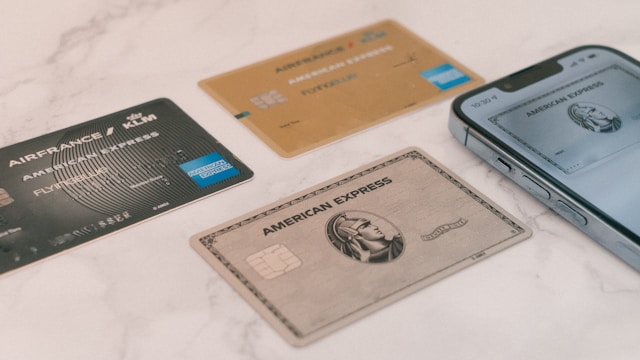Picking the best credit card can feel a little like trying to find the perfect pair of shoes. There are tons of options, but not every pair fits quite right. Credit cards work the same way – there’s no “one-size-fits-all.” Some cards offer fantastic rewards, while others provide low-interest rates or amazing travel perks. So, how do you find the best one for you? Don’t worry, we’re going to break it down in a way that feels like you’re chatting with a friend.
1. Know Your Spending Habits
The first step in finding the best credit card is understanding how you typically use your credit card. Are you someone who pays off your balance in full each month, or do you sometimes carry a balance? This matters a lot because the kind of card that works best for you depends on your habits.
- If you pay off your balance each month: You’re in a great spot to take advantage of rewards cards. Why? Because you don’t need to worry about high-interest rates eating into those perks.
- If you carry a balance: Look for a low-interest card. Sure, rewards are cool, but if you’re paying high interest, those perks aren’t really worth it.
So, before diving into credit card options, grab a cup of coffee, sit down, and check out your spending patterns over the last few months.
2. Define What “Best” Means to You
Next, let’s talk about what makes a card the “best credit card.” It really depends on what you’re hoping to get out of your card. For some people, “best” means maximizing rewards. For others, it’s all about low fees or building credit.
- Rewards: Do you want cash back, points for travel, or maybe even store rewards? Different cards are designed for different kinds of rewards. For example, if you travel frequently, a card with travel perks might be the best credit card for you. On the other hand, if you want something simpler, cash-back cards are straightforward and easy to use.
- Low Interest Rates: If you carry a balance month-to-month, the best credit card for you is one that offers a low APR. This helps you save on interest and pay down your balance faster.
- No Annual Fees: Some credit cards offer great rewards, but they come with a hefty annual fee. If you’re not getting enough value from the card to justify the fee, it’s not worth it. For someone who doesn’t use credit cards heavily, a no-annual-fee card might be the way to go.
- Building Credit: If your goal is to build or rebuild your credit, you’ll want to find a card that’s specifically designed for that. Secured credit cards are often a good option here. They typically have lower credit limits and require a deposit, but they help establish or improve your credit over time.
3. Compare Interest Rates and Fees
You’ve got your spending habits down, and you know what you want from a credit card. Now, it’s time to start comparing cards. Even the best credit card for rewards or perks can become a burden if the fees are too high.
- Annual Fees: Like we mentioned earlier, some cards have annual fees that can be a couple of hundred dollars. However, the value you get from the perks or rewards can sometimes offset these fees – but only if you’re maximizing the card’s benefits.
- APR: This is your annual percentage rate, and it’s basically the interest you’ll pay if you carry a balance. Even the best credit card for rewards can have a high APR, so if you’re prone to carrying a balance, prioritize finding a card with a lower rate.
- Foreign Transaction Fees: If you travel abroad often, make sure the card doesn’t charge foreign transaction fees. These fees can add up quickly if you’re not careful.
4. Look at Sign-Up Bonuses (But Don’t Be Lured by Them)
A lot of credit cards will try to woo you with big sign-up bonuses. You know the type: “Spend $3,000 in the first three months and get 100,000 points!” That sounds amazing, right? And sometimes it is, but don’t get too swept away. The best credit card for you is one that you’ll benefit from long-term, not just for a short-term sign-up bonus.
If you’re already planning a big purchase and know you can hit that spending limit easily, then by all means, go for it. But if you’re going to have to stretch your budget to meet the bonus requirements, it might not be worth it.
5. Check the Rewards Structure
Not all rewards cards are created equal. If you’re after a rewards card, pay close attention to how the rewards are structured. Some cards offer a flat rate on all purchases, like 1.5% cash back on everything. Others have rotating categories, meaning you might get 5% back on groceries one month and 5% on gas the next.
- Flat-rate rewards: If you prefer simplicity, this might be the best credit card for you. You don’t have to keep track of what category is offering the highest rewards each month – you just earn points or cash back on everything.
- Rotating categories: If you’re someone who spends heavily in certain categories, these cards can offer a lot of value. Just be sure to keep track of which categories are being rewarded each quarter so you can maximize your benefits.
6. Take Advantage of Introductory Offers
Some of the best credit card options come with introductory 0% APR offers, which can be a lifesaver if you have a big purchase coming up or if you need to transfer a balance from a higher-interest card. Just be aware of when the promotional period ends. After that, the regular APR kicks in, and it’s often pretty high.
Balance transfer cards can also offer a great solution if you’re currently carrying a high-interest balance on another card. The key here is making sure you can pay off the balance during the introductory period before the interest rate shoots up.
7. Consider the Credit Limit
Credit limits are another crucial factor when finding the best credit card. If you’re using your card regularly, you want a limit high enough to handle your spending without maxing it out. Keeping your credit utilization low (around 30% or less of your credit limit) is important for maintaining a good credit score.
8. Check for Additional Perks
Beyond the basics like rewards and low interest rates, some of the best credit card options come with extra perks that can add real value. These might include:
- Travel protections: Some cards offer trip insurance, baggage delay coverage, or even access to airport lounges.
- Purchase protections: Look for things like extended warranties, price protection, and return protection. These perks can save you money if something goes wrong with a purchase.
- Fraud protection: It’s always good to know that your credit card company has your back in case your card information gets stolen. Most cards offer zero-liability fraud protection, but it’s worth double-checking.
9. Don’t Forget About Customer Service
Finally, even the best credit card in the world isn’t worth it if you’re constantly battling poor customer service. Before applying, it’s a good idea to check out reviews or ask friends and family about their experiences with the credit card company. You want a card provider that’s easy to work with, especially if something goes wrong.
10. Apply for the Card That Fits Your Life
Once you’ve narrowed down your options, it’s time to apply. But a word of caution – applying for too many credit cards in a short amount of time can hurt your credit score. So, make sure you’re really confident that the card you’re choosing is the best credit card for your needs before hitting that apply button.
If you have a solid credit score, you’re more likely to be approved for cards with the best rewards and lowest interest rates. If your credit score is still a work in progress, don’t worry. There are plenty of cards designed for people looking to build or rebuild their credit.
The “Best Credit Card” Is Personal
At the end of the day, the best credit card isn’t the one with the flashiest rewards or the biggest sign-up bonus – it’s the one that fits your lifestyle and financial habits. Whether you’re after travel perks, cash-back rewards, or just a simple low-interest card, what matters most is finding a card that helps you meet your goals. So take your time, do your research, and choose the card that feels like the right fit for you – just like finding that perfect pair of shoes.
At the end of the day, finding the best credit card comes down to what works for you. It’s not about getting caught up in flashy offers or trying to maximize every point, but about knowing your habits and picking a card that aligns with your lifestyle. Whether it’s rewards, low fees, or building credit, the key is choosing a card that makes sense for where you are now and where you want to be financially. Take your time, do your research, and choose wisely—it’ll pay off in the long run.



